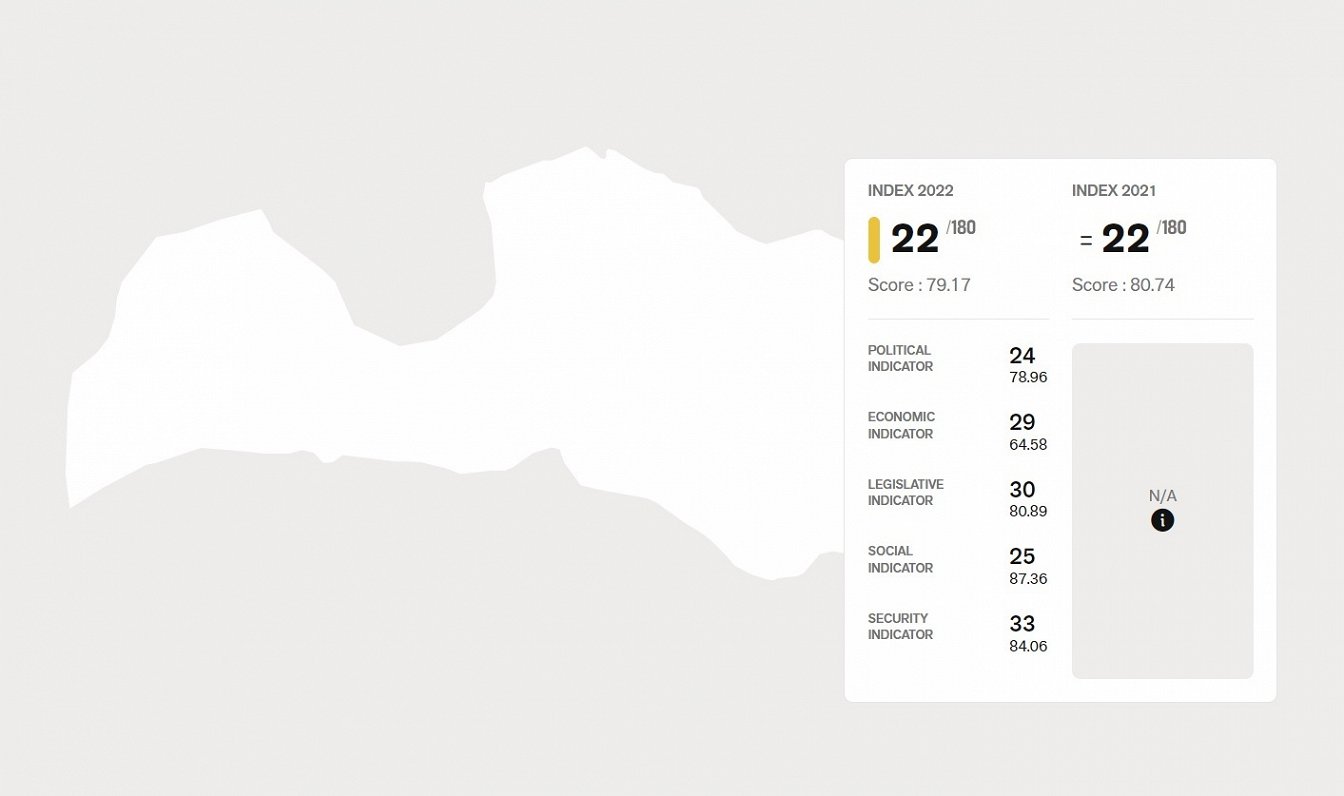It is exactly the same ranking that Latvia achieved in the 2021 Index, though its overall score did fall very marginally from 80 to 79. Latvia continues to rank behind both Lithuania (9th place) and Estonia (4th place) among the 180 countries surveyed.
Nevertheless, Latvia remains ahead of such countries as the United Kingdom, France, the Netherlands and the United States.
Scandinavian countries Norway, Denmark and Sweden occupied the top three spots.
According to RSF, "Journalists [in Latvia] work in a fairly free and safe environment, but access to trustworthy and pluralistic information, especially by the Russian-speaking population, has been a serious issue."
RSF also notes a recent trend of independent Russian media moving to Latvia to escape the oppression and censorship prevalent in Russia itself.
"Alongside the public media (Latvian Television, Latvian Radio), there are strong private (TV3 Group, DELFI, (Re:Baltica etc.) and local media. Several media outlets have moved to Latvia from Russia in search of press freedom. Although numerous channels broadcast from Russia, some of them have been forbidden due to accusations of violation of Latvian and EU legislation," RSF said.
"Media enjoy independence, and investigative and analytical journalism thrives, allowing journalists to hold politicians accountable. Although the access to public information is wide, transparency has been limited due to restrictions related to the Covid-19 pandemic and to Russia’s warfare."
"Both private and public media struggle with insufficient funding. As for local media, some of them have to compete with municipality-financed information outlets. Media ownership is generally transparent and does not raise concerns about market dominance, but more diversity would be favorable to media pluralism," RSF said.
The organization said that though journalists work in a generally safe environment, they are subject to verbal attacks on the street and online.
"Although the police have signed a memorandum on the protection of journalists, there are concerns as to the efficiency of its application. In the run-up to elections, political attacks on the media and attempts to discredit them tend to multiply," RSF added.
The 2022 edition of the World Press Freedom Index, which assesses the state of journalism in 180 countries and territories, highlights the disastrous effects of news and information chaos – the effects of a globalised and unregulated online information space that encourages fake news and propaganda.
According to RSF, within democratic societies, divisions are growing as a result of the spread of opinion media following the “Fox News model” of tub-thumping populism and the spread of disinformation by the way social media functions.
At the international level, democracies are being weakened by the asymmetry between open societies and despotic regimes that control their media and online platforms while waging propaganda wars against democracies.
The situation is classified as “very bad” in a record number of 28 countries in this year’s Index, while 12 countries, including Belarus (153rd) and Russia (155th), are on the Index’s red list (indicating “very bad” press freedom situations) on the map.
The world’s 10 worst countries for press freedom include Myanmar (176th), where the February 2021 coup d’état set press freedom back by 10 years, as well as China, Turkmenistan (177th), Iran (178th), Eritrea (179th) and North Korea (180th).
You can examine the full rankings at: https://rsf.org/en/rsfs-2022-world-press-freedom-index-new-era-polarisation
































